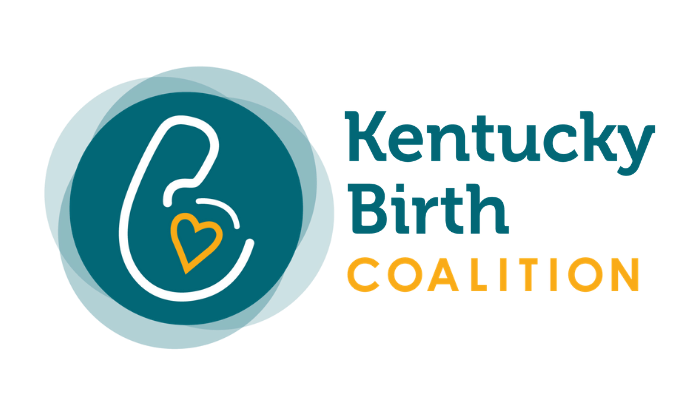March 2024: On March 6, HB199 passed out of the House Standing Committee on Licensing and Occupations. Watch here.
On March 26, HB199 passed the House and was received in the Senate.
January 2024: On January 9, 2024, Rep. Jason Nemes (R- Louisville) filed HB199 the Mary Carol Akers Birth Centers Act. Sen. Shelley Funke Frommeyer (R- Alexandira) filed the Senate companion bill SB103 on January 10.
As with previous legislation, these bills will exempt freestanding birthing centers from Kentucky’s certificate of need requirement. The bills also require that the existing antiquated administrative regulations for birthing centers be updated. Currently, there are no freestanding birthing centers in Kentucky.
What is a freestanding birth center (FSBC)?
According to the American Association of Birth Centers, “the birth center is a health care facility for childbirth where care is provided in the midwifery and wellness model. The birth center is freestanding and not a hospital.
Birth centers are an integrated part of the health care system and are guided by principles of prevention, sensitivity, safety, appropriate medical intervention and cost-effectiveness. While the practice of midwifery and the support of physiologic birth and newborn transition may occur in other settings, this is the exclusive model of care in a birth center.
The birth center respects and facilitates a woman’s right to make informed choices about her health care and her baby’s health care based on her values and beliefs. The woman’s family, as she defines it, is welcome to participate in the pregnancy, birth, and the postpartum period.”
What is Certificate of Need?
According to the Mercatus Center, Certificate-of-need (CON) laws require healthcare providers to obtain permission before they open or expand their practices or purchase certain devices or new technologies. Applicants must prove that the community “needs” the new or expanded service, and existing providers are invited to challenge would-be competitors’ applications. CON laws have persisted in spite of mounting evidence from health economists, regulatory economists, and antitrust lawyers showing that these laws fail to achieve their intended goals.
Birth Centers in Kentucky
Kentucky currently has no freestanding birth centers. The last known FSBC in Kentucky closed it’s doors in the 1980s. Nonetheless, requirements for licensing of birth centers (although outdated) as well as regulations for Medicaid reimbursement (here and here) in Kentucky already exist. In fact, birth centers are referenced multiple times in Kentucky Revised Statutes and Kentucky Administrative Regulations.
In 2009, Certified Nurse Midwife Mary Carol Akers began the process of opening the Visitation Birth and Family Wellness birth center (VBFWC). In November 2012, VBFWC requested a CON review. Subsequently, three hospitals identified that they were affected persons and requested a CON hearing, which was granted.
After a four-day hearing in February and March 2013, the CON was denied by the Cabinet for Health and Family Services, agreeing with the hospitals that there was no need for a birth center.
Ms. Akers appealed that denial to the Franklin County Circuit Court and the court reversed the decision of the Cabinet for Health and Family Services in February 2015. The court ruled that the hospitals were not affected parties because “traditional health providers, by definition, are separate and distinct from ‘alternative birth centers.’” Therefore, the hospitals lacked standing to challenge the CON for VBFWC.
The 3 hospitals appealed the circuit court’s findings. In September 2017, the Court of Appeals ruled 2 to 1 to reverse the Circuit Court ruling, reinstating the Cabinet’s denial of a CON. The court ruled that the Center did not prove the need for service, since the need was adequately met by the appellant hospitals. It further ruled that the projections of patient volume and financial figures were not correct. The dissenting judge noted that projections of patient volume and financial figures are irrelevant to the CON process and that the alternative birth center offers services separate and distinct from those offered by a hospital.
The expense of applying for the CON along with the legal expenses of the appeals process effectively exhausted the resources of VBFWC. Ms. Akers was left with no options but to end the process. She subsequently moved out of Kentucky.
Birth Centers Should be Exempt from CON
The principles underlying CON statutes are based upon a health planning rather than a competitive model. AABC and the Kentucky Birth Coalition believe that reasonable arguments can be made for exempting FSBCs, due to their small size and the essentially outpatient nature of birth center services. Most women who give birth at a FSBC spend less than twenty-four hours there. With respect to prenatal and postpartum services, FSBCs function more like a physician’s or midwife’s office than a health care facility. Furthermore, local levels of high demand will typically exist for a proposed FSBC, because birthing people interested in the birth center option will strongly support adding a FSBC in the local community. FSBCs are also likely to attract birthing people from further away who would not otherwise have traveled outside of their own community where they could have given birth in the local hospital.
FSBCs in some states have had to go through multiple rounds of CON before approval was finally granted. As we have seen in Kentucky, the hospitals with their deeper pockets, oppose FSBCs. These expensive proceedings constitute a significant barrier to entry for would-be birth center entrepreneurs, most of whom would be considered small businesses and some which are Federally Qualified Health Centers.
The evidence shows that FSBCs provide high quality, high value care with high rates of client satisfaction. Lower cesarean rates and other positive outcomes lead to immediate and longer term healthcare savings. Removing barriers associated with the CON process would increase access to a high quality model of maternity care.
